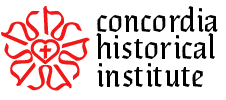1187 Pope Gregory VIII died (b. ca. 1100).
1531 Pope Clement VII (1478–1534) established a parallel to the Inquisition in Lisbon, Portugal.
1538 Pope Paul III (1468–1549) excommunicated Henry VIII of England.
1543 George, Margrave of Brandenburg-Ansbach, who aided the Reformation in Silesia and Ansbach and protested at Speyer in 1529 and at Augsburg in 1530, died (b. 4 March 1484 at Ansbach, Germany).
1638 Anna Sophia of Hessen-Darmstadt, hymnist, was born in Marburg (d. 13 December 1683).
1682 Beata Sturm, known for helping the poor, sick and needy, was born in Stuttgart, Germany (d. 1730).
1761 Ernst Gottlieb Woltersdorf, German poet, preacher and author, died (b. 1725).
1770 Ludwig van Beethoven, German composer, was baptized (born either 16 or 17 December in Bonn, Germany; d. 26 March 1827).
1790 Johann Balthasar Kohlhoff, Lutheran missionary to Tranquebar, India, died (b. 15 November 1711, Neuwarp, West Pomerania).
1807 John Greenleaf Whittier, American Quaker poet, abolitionist and hymnist, was born (d. 7 September 1892).
1834 Marianne Hearn, English Baptist religious editor and hymnist, was born (d. 16 March 1909, Barmouth, England).
1836 John Rippon (b. 1751), English Baptist clergyman and hymn publisher, died.
1853 Missionary Eduard Raimund Baierlein (1819–1901), who had previously worked with American Indians in Michigan, arrived at Madras, India, to begin his work for the Leipzig Evangelical Lutheran Mission.
1874 Eusebius Schultz Henkel, president of the Union Synod of the Evangelical Lutheran Church, died (b. 26 July 1811, Lincoln County, North Carolina).
1897 David Alexander Day, Lutheran missionary and doctor in Liberia, died (b. 17 February 1851).
1900 The Church of the Lutheran Brethren of America (CLBA) was organized.
1912 Yale-educated Chicago native Bill Borden (1887–1913), heir to a fortune in real estate and milk production, boarded a ship to China via Egypt. Converted as a young man, Borden had given his inheritance and his life to the cause of world evangelism. Only a month after arriving in Egypt, he contracted spinal meningitis and died. However, publication of his story prompted many young people to enter the mission field.
1917 The tune ST. DUNSTAN’S was written by C. Winfred Douglas (1867–1944) while returning by train from New York to his home at Saint Dunstan’s cottage in Peekskill, New York.
1917 The Bolsheviks confiscated all property of the Russian Orthodox Church and abolished religious instruction in the schools.
1924 George Weller died in Seward, Nebraska (b. 8 January 1860, New Orleans, Louisiana). He graduated from Concordia Seminary (Saint Louis) in 1882 and served as a pastor in Marysville, Nebraska. He was a professor and director (president) of the Missouri Synod teachers seminary at Seward from 1894 to 1924.
1927 Elling Hove, professor at Luther Seminary (Saint Paul, Minnesota), died (b. 25 March 1863, Northwood, Iowa).
1930 Jens Christian Roseland, Augustana Synod leader, died (b. 25 March 1859, Sandnes, Jaederen, Norway).
1935 Frank Mason North (b. 3 December 1850, New York City), American Methodist clergyman and hymnist, died.
1936 Pope Francis (Jorge Mario Bergoglio) was born in Buenos Aires, Argentina.
1957 Dorothy Sayers (b. 13 June 1893), English writer, died.
1972 Carl Stamm Meyer, professor at Concordia Seminary (Saint Louis), died (b. 12 March 1907).
1999 Pope John Paul II (1920–2005) told an international symposium, “Today, on the eve of the Great Jubilee, I feel the need to express deep regret for the cruel death inflicted on Jan Hus.” He commended Hus’s “moral courage in the face of adversity and death” and proclaimed that through the scholars’ work, “Hus, who has been such a point of contention in the past, has now become a subject of dialogue, of comparison and shared investigation.”


